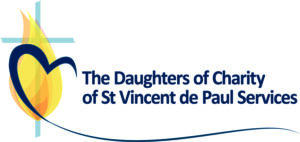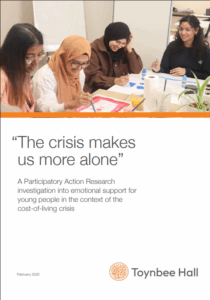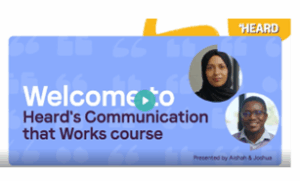4in10 Newsletter 29.5.25
Read the latest newsletter here.
To get this directly to your inbox every fortnight please do join us.
Spotlight Interview with Daughters of Charity Services
Daughters of Charity Services

Comments from Mark Corea, Research and Policy Officer at Daughters of Charity Services
Daughter of Charity Services is a charity that works with people and the media to inspire content and communication that changes hearts and minds.
1. How are you helping to tackle child poverty in London?
One of the projects in our family, St Vincent’s Family Centre, provides a range of services to families in need, particularly in the Westminster area. The services include a drop in and creche service, classes and therapy for families, as well as a food bank service. We also have projects serving people in need in Manchester and Glasgow.
At a head office level, tackling child and family poverty is one of the five priorities in our 2024–2027 strategy. We work in partnership with other charities, including members of the Catholic Social Action Network (CSAN), to raise awareness and influence policy through co-signing letters, policy papers, and working on campaigns together.
Later this year, we will also be launching a research project focusing on the lived experiences of families affected by poverty in London, based on the experiences of our projects and other data that we’ll gather.
2. Tell us something you are excited about?
We have many things to be excited about at the Daughters of Charity Services. We recently launched our ‘Emerging Poverties Briefing’ through which we collate stories and updates on poverty in London and across the country and goes out to about 150 subscribers.
We are also excited to launch our paper on poverty among Asylum Seekers and Refugees, which discusses policy papers and other literature on this topic, to understand the causes and solutions to this poverty. Later in the year, we’ll be launching a large research project on child and family poverty in the UK, as well as a smaller project on social care in Scotland.
3. Share with our members something positive about your organisation’s achievement or service?
Our member projects are diverse and span across the UK. Our Westminster-based social care service, Vincentian Care Plus, provides domiciliary care for Westminster City Council. For two years running, 2024 and 2025, they have won a High Commendation at the Homecare Awards for their work supporting people affected by homelessness at Edward Alsop Court in the London Borough of Westminster. The model of enablement they run is inspiring and we are extremely proud of their achievement and recognition for supporting vulnerable Londoners.
4. What can other network members learn from you or find out more about through you?
Other networks can learn about the Vincentian approach to serving the people most in need and the history of the Daughters of Charity in Britain. They are a truly unique group of women who have dedicated their whole lives to serving people in poverty, and we exist to continue their legacy. Our Vincentian Values ensure that all of our staff live this legacy out.
We run a variety of services throughout the UK, ranging from supporting vulnerable families and older people in Westminster to supporting Roma families in Glasgow and families of prisoners in Manchester.
Other Vincentian charities include Depaul UK, the Passage, and the St Vincent de Paul Society. These charities share the same ethos as us, and they all carry out great work in London and throughout the UK.
5. What would most help you achieve your goals?
As a small charity more collaboration with other charities would help us achieve our goals. We are proud to be part of some great networks, including 4in10, NCVO and the No Child Left Behind campaign, and Caritas Social Action Network. By joining up messaging and working together on campaigns with other charities of all sizes, it strengthens our voice as a small charity and we believe a united voice strengthens the message of our advocacy and campaigning.
6. Why did you join 4in10? What do you enjoy about being part of the 4in10 network?
We joined 4 in 10 as it is a large network of like-minded charities who are all keen to serve the most vulnerable in our society, which is our fundamental purpose. The events and the newsletter service are particularly helpful, as it makes it easy to network with charities across the city that serve people in need.
The emotional toll of poverty on children, young people and families
This blog is adapted from a LinkedIn post published by our Strategic Programme Manager, Katherine Hill to mark Mental Health Awareness Week 2025
“I feel anxious all the time, like I’m riding a rollercoaster…”
That’s how one parent in London recently described life with young children.
But it wasn’t sleepless nights or toddler tantrums they were talking about — it was poverty.

This Mental Health Awareness Week, I want to highlight two powerful reports published recently by members of 4in10 London's Child Poverty Network that make something crystal clear: poverty doesn’t just affect bank balances — it affects mental health, emotional resilience, and how people experience the world around them.
Last week, Home-Start London released new research based on interviews with families supported by local Home-Starts across the city. The picture they paint is tough.
- Nearly 9 in 10 families (86%) say that money worries are making parenting harder.
- 81% feel anxious or stressed because of financial pressure.
- And 6 in 10 say it increases their sense of isolation.
“Rent is always our priority, then bills. But in London, the price of everything is going up. It’s been a challenge — we’ve had to go to our local food bank.”
Parent interview
 Earlier this year, Toynbee Hall published “The crisis makes us more alone”, a report led by 12 brilliant young peer researchers from low-income backgrounds in Tower Hamlets. Their work explores how the cost-of-living crisis is affecting young people’s mental health. The findings are just as powerful and just as worrying:
Earlier this year, Toynbee Hall published “The crisis makes us more alone”, a report led by 12 brilliant young peer researchers from low-income backgrounds in Tower Hamlets. Their work explores how the cost-of-living crisis is affecting young people’s mental health. The findings are just as powerful and just as worrying:
- Over half of the young people surveyed had experienced rising stress within their immediate families.
- Nearly half said their own mental health was getting worse.
- These issues are compounded by financial insecurity, overcrowded housing, and insufficient mental health services, creating a web of challenges that many struggle to navigate.
These two reports, focusing on different stages of young lives, tell the same story: poverty and poor mental health are deeply intertwined.
Struggling to make ends meet doesn’t just fray people’s nerves, it isolates them and makes it harder to access help.
But there is hope - and it lives in our communities. Both pieces of research show the crucial role voluntary and community organisations play in offering support, connection, and understanding. These are the safety nets too often missing or even undermined from national policy.
We don’t need any more proof that poverty damages lives. What we need is action. We need policies that recognise that mental health isn’t just about individual resilience - it’s about the social and economic conditions we create.
Spotlight Interview with Heard.
Heard
Comments from Becka Kellaway, anti-poverty campaigner and Aishah Siddiqa, senior programme manager at Heard
Heard is a charity that works with people and the media to inspire content and communication that changes hearts and minds. On a fundamental level, good communication means being heard and feeling heard. Using insights from research and our 15 years experience of supporting communicators, we help storytellers build their confidence, land their message and engage audiences. Our work has reached millions of people in their living rooms and on their newsfeeds.
- How are you helping to tackle child poverty in London?
Heard has been supporting organisations and campaigners working on a range of social issues including child poverty. We do this through our consultancy and training offers for sector partners andcampaigners with first hand experience, and through our bespoke workshops for the TV and entertainment industry. Our mission is to create conversations about social issues that change minds and develop the conditions for lasting social change. The long-term effects are two-fold: a public that is more receptive to and approving of policy change, and a new generation of individuals who feel inspired to act on our most urgent issues.
Becka – I hope I help by campaigning and raising awareness. I am more than happy to speak out about things that I see are unjust and I don’t mind sharing my personal experiences. I think others can feel silenced by stigma and shame so I believe it’s important to shine a light and make a difference where you can.
- Tell us something you are excited about?
Becka – I’m excited that there are more conversations happening around child poverty and ways to tackle it and I’m really very hopeful for the future.
Heard has also recently started a new piece of work exploring how a narrative change approach, informed by lived experience, can shift cultural perceptions of our economy. Often messages about economic change delivered by academics and people with economic privilege are limited in effectiveness. The majority of the country will relate more to people who share in their lived experiences of financial hardship and other forms of economic injustice. These are the people who should lead a new story about what our economy could be, and the systemic changes that need to happen to bring that change about. We’re looking for lived experience consultants to help us explore this and create a set of framing recommendations about the economy to share with other campaigners, partners and organisations in the ecosystem. If you’re interested in finding out more, please email aishah on aishah@heard.org.uk
- Share with our members something positive about your organisation’s achievement or service?
Becka – the best thing about this organisation is that it empowers people to tell their story bravely and it supports them throughout the process and helps to frame the narrative so we all feel safe in our work.

Together with other lived experience consultants, we co-designed the digital version of Heard’s poverty focussed ‘Communication That Works’ course. The course itself is a blend of self-directed learning on an online platform with live workshops running over several weeks covering ways to effectively frame communications on poverty and tools to keep safe when sharing stories in interviews and beyond. We ran a successful pilot at the end of last year with Becka brilliantly facilitating our live workshops. We’ll be making final tweaks before going live this summer.
“This Heard Training course has been profoundly informative and impactful, not only in reshaping my approach as a communications professional but also in influencing how I think about and discuss social issues in all areas of my life. The trainers were knowledgeable, confident and excellent facilitators. The video content was clear, easily digestible and engaging. Overall, the program was truly transformative.” – Fern Bain Smith, Marylebone Project
- What can other network members learn from you or find out more about through you?
Becka- They can learn from Heard’s example how to be a champion for people with lived experience
Becka is an amazing, energetic and thoughtful facilitator – reach out if you require someone sensitive and engaging!
- What would most help you achieve your goals?
Becka – Funding, opportunities, awareness, more people fighting the good fight and they can start by attending the training and being mindful and empowered advocates.
- Why did you join 4in10? What do you enjoy about being part of the 4in10 network?
Narrative change requires joined-up approaches – and we love being able to work with 4in10 and its members. The Challenge Poverty Weeks were great examples of this in action! If anyone would like to connect and chat about how we can collaborate, please do =D
4in10 Newsletter 15.5.25
Read the latest newsletter here.
To get this directly to your inbox every fortnight please do join us.

